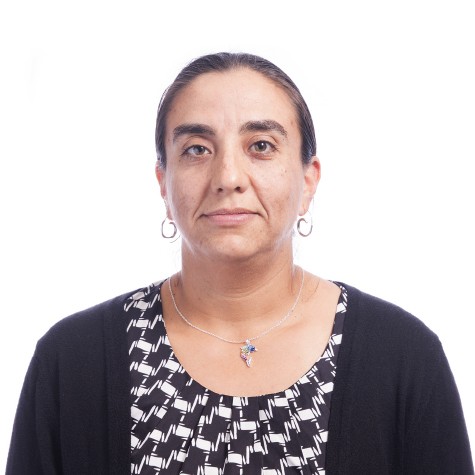Meet Your Future Instructor: Dr. Soledad Benitez

Part of what distinguishes our online programs at The Ohio State University is our focus on faculty. The exceptional instructors who teach our online courses are passionate about students and invested in your educational experience.
The Department of Plant Pathology operates seamlessly across two Ohio State campuses: Wooster and Columbus. Students benefit from the relationship between the campuses by having access to additional resources and professors. Videoconferencing lectures and labs are led by expert faculty, including Soledad Benitez, an assistant professor in the Department of Plant Pathology, which co-manages the online Master in Plant Health Management program.
What courses do you teach in the Department of Plant Pathology?
The main course I teach is Phytobacteriology, PLNTPTH 5010, which is an advanced higher-level course focused on bacteria associated to plants, different factors that contribute to plant disease and beneficial interactions with plants and bacteria.
I co-teach PLNTPTH 8300, which is more focused on plant-microbiome interactions, looking at not only bacteria and fungi, but other microbes from a more beneficial perspective as well as methods on how to study them.
I also teach PLNTPTH 6002.01, a plant bacteriology lab, for half of a semester. There are different things we are trying to integrate into that lab, and this is always a work in progress.
How does your classroom operate via video conference?
What we call video-linking, and now Zoom, has been in our College for a long time because our department is split between Wooster and Columbus.
We have rooms in our College on both campuses that are fully set up with microphones so you can be any place in the room and the microphone will pick you up. It doesn’t matter where you are sitting down. Of course, we have a camera so that we can see when a student wants to answer a question. They just raise their hands and participate in discussion.
My courses range from 6-10 students, which allows for a lot of interaction. People are constantly speaking.
How do laboratories operate via video conferencing?
We have teaching assistants on both campuses. We talk and always have videos on, so that allows me to work with all of the students and make sure that they all have the same material.
There is always faculty moving back and forth between campuses for different reasons. For example, we grow plants in our Wooster greenhouse, and when they are ready, we send them to Columbus for the lab.
I always try to go around once a week to the Columbus campus to have the opportunity to interact directly, personally, with all students.
What are the benefits of learning via video conference?
I think the biggest advantage is that we can offer these classes to students on different campuses. Students are able to focus more on their research rather than having to take time commuting between campuses. It really allows for the students to have access to all faculty and their expertise by having this opportunity.
What expectations do you have for students in your courses?
Work hard and be honest. We expect our students to be engaged and try to help them be motivated. I feel like graduate students should be given a little bit more flexibility while having more responsibility.
Students have a lot of flexibility to choose topics that they want to develop in class, that they want to read about and present. I think I am flexible in terms of scheduling and allowing some space for them to be able to feed some of their research, but they still have to excel in their classes.
What advice do you have for students interested in this program?
My first piece of advice would be for students to explore more courses outside of their zone of comfort. Our courses are pretty interesting and there is a lot of application, not only in agriculture, but also in plant biology and microbiology. Open yourself to look at courses outside your college and outside your program. See if you can find something that might be of your interest and useful and fit with what you want to do later.
Are you ready to start learning online from Ohio State’s world-renowned faculty? Fill out our online form to learn more about a specific program.
